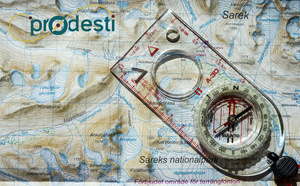
While three main transporters from the Gulf were “accused” of having received a little more than 40 billion dollars in aid from their respective countries, a study demonstrates that more than 70 billion dollars made up the majority of the help given by the ‘Chapter 11’ to American companies. © Štěpán Kápl - Fotolia.com
And here is a first element of response that is coming rather quickly when the incriminated transporters have asked for 2 years before giving a detailed answer.
Etihad Airways is the first to act. For that it called on the expertise of an anglo-saxon firm: the Risk Advisory Group.
The firm studied the financial advantages that American companies have benefited from since 2000. And the results are enlightening.
While the three main transporters of the Gulf were “accused” of having received a bit more than 40 billion dollars in aids from their respective countries, the study points that more than 70 billion dollars made up most of the help given through “Chapter 11.”
It is a favorable system that rules American bankruptcies and the replenishment, by the American government, of pension systems that should have normally been liquidated during successive bankruptcy petitions of which, let’s remember, all of the main American transporters benefited from with the notable exception of Alaska Airlines.
In large numbers, 35.6 billion dollars were attributed thanks to the help of Chapter 11 and 29.4 billion dollars to replenish pension funds.
The rest, meaning 5 to 6 billion dollars, is not detailed in the press statements.
Etihad Airways is the first to act. For that it called on the expertise of an anglo-saxon firm: the Risk Advisory Group.
The firm studied the financial advantages that American companies have benefited from since 2000. And the results are enlightening.
While the three main transporters of the Gulf were “accused” of having received a bit more than 40 billion dollars in aids from their respective countries, the study points that more than 70 billion dollars made up most of the help given through “Chapter 11.”
It is a favorable system that rules American bankruptcies and the replenishment, by the American government, of pension systems that should have normally been liquidated during successive bankruptcy petitions of which, let’s remember, all of the main American transporters benefited from with the notable exception of Alaska Airlines.
In large numbers, 35.6 billion dollars were attributed thanks to the help of Chapter 11 and 29.4 billion dollars to replenish pension funds.
The rest, meaning 5 to 6 billion dollars, is not detailed in the press statements.
All of the American companies received something
And everybody benefited…
United Airlines comes up first with 44.4 billion dollars followed by Delta Air Lines with a modest amount of 15.02 billion dollars and American Airlines with 12.05 billion dollars.
Ok, we can make these numbers say what we want especially since they represent estimates and that the amounts are astronomical, as were the numbers put forward by American transporters concerning the Gulf companies.
They will each defend themselves by arguing that they weren’t aids, but an application of administrative rules of each State. Great argument!
In the end, the only referee of this battle that, in my opinion, is really not interesting, is the client. He decides to which service providers he wants to give money.
And he does it not for administrative or regulatory reasons, but because he’s first of all thinking about his interest and wants “value for money.”
Yet, for years, Western companies have made their clients support lower compensation costs that they were incapable of absorbing from within their companies.
And since these clients did not have a choice, the transporters took their lack of reaction as an approval of their harmful policy that in the end consisted of protecting their employees to the detriment of their passengers.
United Airlines comes up first with 44.4 billion dollars followed by Delta Air Lines with a modest amount of 15.02 billion dollars and American Airlines with 12.05 billion dollars.
Ok, we can make these numbers say what we want especially since they represent estimates and that the amounts are astronomical, as were the numbers put forward by American transporters concerning the Gulf companies.
They will each defend themselves by arguing that they weren’t aids, but an application of administrative rules of each State. Great argument!
In the end, the only referee of this battle that, in my opinion, is really not interesting, is the client. He decides to which service providers he wants to give money.
And he does it not for administrative or regulatory reasons, but because he’s first of all thinking about his interest and wants “value for money.”
Yet, for years, Western companies have made their clients support lower compensation costs that they were incapable of absorbing from within their companies.
And since these clients did not have a choice, the transporters took their lack of reaction as an approval of their harmful policy that in the end consisted of protecting their employees to the detriment of their passengers.
Towards a generalized Open Sky?
Yes, but here it is, the pressure of passengers clearly leads to a policy of free competition.
All the efforts of traditional Western companies will have, in the end, only delayed the unavoidable: a generalized “open sky.”
Let’s not forget that clients of air transport are also electors and are often affluent. And one day or another, traditional transporters will be confronted to a difficult reality: competitors coming from somewhere else who are better than them.
Not only for what concerns the cost price, but also the methods of management, and of course the care given to their clients.
If American transporters see themselves, one day or another, confronted to the competition of “low costs” and Gulf companies on the major axis of the Transatlantic, something that will surely happen, then they will really have to worry.
And since they are quite conscious of it, they're screaming before it actually hurts, because for now their accounts are quite good. But fear doesn’t take away danger.
All the efforts of traditional Western companies will have, in the end, only delayed the unavoidable: a generalized “open sky.”
Let’s not forget that clients of air transport are also electors and are often affluent. And one day or another, traditional transporters will be confronted to a difficult reality: competitors coming from somewhere else who are better than them.
Not only for what concerns the cost price, but also the methods of management, and of course the care given to their clients.
If American transporters see themselves, one day or another, confronted to the competition of “low costs” and Gulf companies on the major axis of the Transatlantic, something that will surely happen, then they will really have to worry.
And since they are quite conscious of it, they're screaming before it actually hurts, because for now their accounts are quite good. But fear doesn’t take away danger.

Jean-Louis Baroux, is the former president of APG (Air Promotion Group) and the creator of the CAF (Cannes Airlines Forum) which became the World Air Forum.
Air Transportation Specialist, he signed at L'Archipel Publishers ''Compagnies Aériennes: la faillite du modèle” [“Airlines: A Bankruptcy Model” – translator’s note], a book that all tourism professionals should have read.
The copyrights will be donated to charity. It can be purchased at: www.editionsarchipel.com
Air Transportation Specialist, he signed at L'Archipel Publishers ''Compagnies Aériennes: la faillite du modèle” [“Airlines: A Bankruptcy Model” – translator’s note], a book that all tourism professionals should have read.
The copyrights will be donated to charity. It can be purchased at: www.editionsarchipel.com


























![De l’auberge de jeunesse au Generator : toute une histoire [ABO] De l’auberge de jeunesse au Generator : toute une histoire [ABO]](https://www.tourmag.com/photo/art/large_16_9/93247694-65219608.jpg?v=1765984636)















